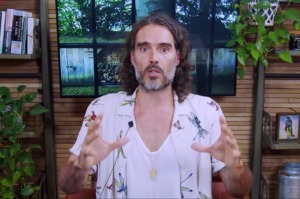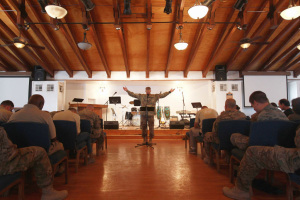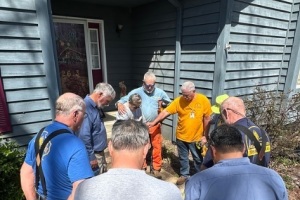Researcher: 50-50 Marriage a 'Myth'
A researcher who recently conducted several interviews of senior citizens for a research project has concluded that the notion of a 50-50 marriage is a "myth."
Dr. Karl A. Pillemer, professor of Human Development at Cornell University, interviewed 1,000 older people for a work known as the Legacy Project regarding how marriages could last. "For long-term success, couples have to orient themselves to giving more than they get," wrote Pillemer in an article posted on The Huffington Post last week.
"So these long-married elders tell us to stop thinking of marriage as a 50-50 proposition; for decades of life together, you have to throw away the score card."
Christine E. Buckingham, executive director of the Life Christian Counseling Network, told The Christian Post that she concurred with Pillemer's findings.
"It is virtually impossible to quantify each person's contribution within marriage, and an expectation that it can be 50/50 creates a set-up for ongoing disappointment and resentment," said Buckingham.
"Scripture speaks first and foremost to healthy relationships. Marriage is not exempt from rules that create healthy relationships. Galatians 6:2-5 admonishes us to both take responsibility for our own load as well as sharing (bearing) each other's burdens."
In her own experience of counseling married couples, Buckingham told CP that the sense of inherent value to the contributions each partner makes can keep a marriage strong.
"In my experience, couples that identify as happily married believe they have equivalent equity in the marriage: each partner has the sense of similar equity, regardless of the percentage invested and each feels they have a satisfactory return on their investment," said Buckingham.
"What is important is that each views their contributions as valuable and valued by their partner and that their partner holds a similar view of their own contributions and benefits. This is true regardless of the faith orientation of the couple."
Pillemer's research into what helps marriages was part of an overall effort by the researcher known as the Legacy Project. According to its Cornell-sponsored website, a major goal of the project is to provide "Lessons for Living from the Wisest Americans."
"The Legacy Project began in 2004, when I started collecting the practical advice for living of America's elders," wrote Pillemer on the "About the Project" page.
"People from across the country in their 70s and beyond shared their wisdom for living. Their advice ranges from how to be happy on a day-to-day basis, the secrets to a successful marriage, tips on raising children, ways to have a fulfilling career, strategies for dealing with illness and loss, and how to grow old fearlessly and well."
As part of the Legacy Project, a book detailing the interview responses by the sample space of older Americans was released on Nov. 10, 2011.
When asked by CP what influence the findings of the research could have on marriage in America, Buckingham responded that it could remove harmful barriers on spousal roles.
"It can remove barriers to defining roles and responsibilities. Each spouse is free to contribute their all in order develop the most rewarding marriage possible without rigid stereotypical constraints," said Buckingham.





























